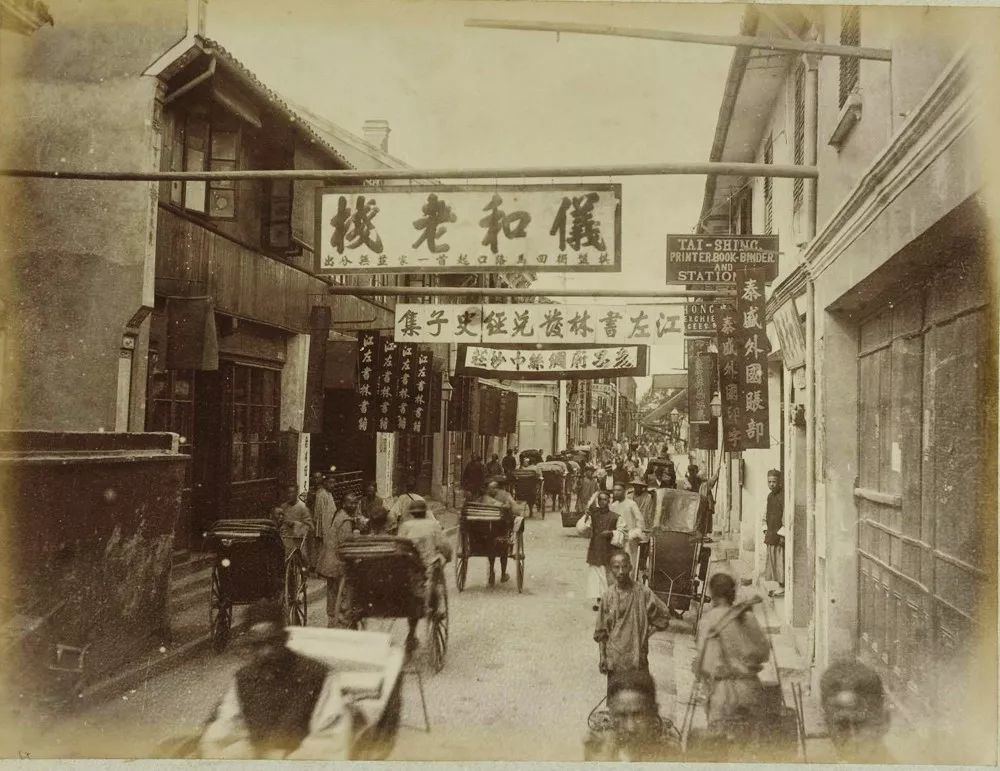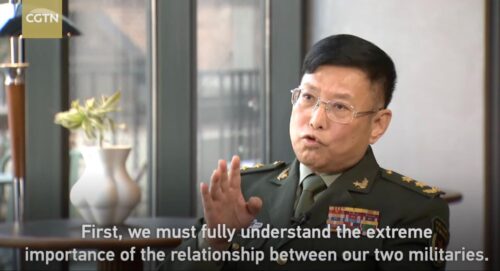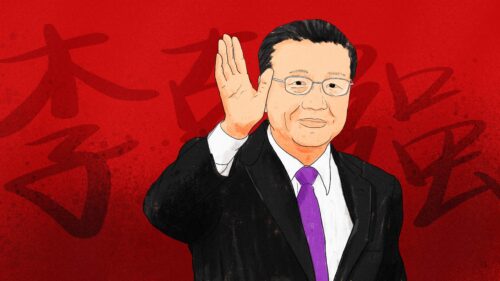U.S. lawmakers want to restrict sales of gene sequencing tech to China
...and Uyghur life inside and outside the detention centers | September 7, 2023
| Dear reader:
U.S. curbs on tech exports to China are a big story today. At the top of the newsletter is our reported piece on proposed restrictions on the sale of gene sequencing technology to China. Human rights abuses are the stated motivation, but the curbs could also hurt U.S. companies and affect ordinary medical uses such as coronavirus testing. Huawei’s new phone is in the news again today for its use of a chip made by a South Korean firm that says it is in compliance with U.S. sanctions against Huawei — there’s a quick summary and links in the News Briefing section below. Our Word of the Day is: gene sequencing (基因测序 jīyīn cèxù).
|
 |
Jeremy Goldkorn Editor-in-Chief |
SANCTIONS AND THE SURVEILLANCE STATE
U.S. lawmakers want to restrict sales of gene sequencing tech to China |
 Illustration for The China Project by Alex Santafé Illustration for The China Project by Alex Santafé |
U.S. lawmakers are proposing new rules to crack down on the sale of American-made gene sequencing technology into China’s booming market.
China’s annual DNA sequencing market was estimated to be valued at 18.3 billion yuan ($2.5 billion) in 2022.
While not all sales of genetic tech to China will be banned if the bill passes, companies will incur higher costs and administrative burdens, regardless of the buyers, when selling some types of tech in China. Eduardo Jaramillo |
NEWS BRIEFING
| Here’s what else you need to know about China today:
A new Huawei smartphone that uses technology that has found ways around U.S. sanctions also uses a chip made by South Korean firm SK Hynix, which responded: “SK Hynix no longer does business with Huawei since the introduction of the U.S. restrictions against the company and with regard to the issue, we started an investigation to find out more details.” Australian Prime Minister Anthony Albanese will visit Beijing this year, he announced today after having “frank and constructive” talks with Chinese Premier Lǐ Qiáng 李强, Beijing’s second-in-command, on the sidelines of the ASEAN summit in Jakarta, Indonesia. If the visit goes as planned, Albanese will be the first Australian prime minister to visit China in seven years. The face-to-face meeting in Jakarta between Albanese and Li took place as their two countries held their first High-Level Dialogue in three years in Beijing. The dialogues had taken place annually since 2014 but were suspended in 2020, after Beijing imposed sanctions on Australian imports in response to Canberra’s accusations of foreign interference in domestic politics and calls for an investigation into COVID origins that year. China’s exports fell 8.8% in August compared with a year earlier, China’s General Administration of Customs (GAC) announced today. It marks the fourth consecutive month of decline, but at a slower pace than forecasts had predicted and less than the 14.5% drop in July, as the manufacturing sector in the world’s second-largest economy struggles with weak demand at home and overseas. Imports also fell 7.3% in August from a year earlier. Meanwhile, Chinese foreign direct investment (FDI) in the U.S. plunged last year, with total completed transactions amounting $2.49 billion — less than half the amount in 2021 and the smallest since 2009, consulting firm Rhodium said in a new report released today. U.S. House Speaker Kevin McCarthy called China’s stance on the Fukushima discharge “unfair” and “false” today during his visit to Japan. Tokyo has insisted that its decision to begin releasing treated radioactive water from its wrecked nuclear power plant is safe, despite strong criticisms from Beijing. Earlier that same day, Japanese Prime Minister Fumio Kishida said he explained Japan’s position on the matter to Li Qiang during their brief meeting on the sidelines of the ASEAN summit in Jakarta. South Korean President Yoon Suk Yeol said that any attempts to change the status quo by force in the South China Sea “cannot be tolerated” and called to “establish a rules-based maritime order” in the region during the ASEAN summit, right before he had his own sidelines meeting with Li Qiang. On September 4, Yoon said in an interview with Indonesia’s Kompas newspaper that it was time for China and Japan to get their trilateral relationship “back on track.” Vice Premier Liú Guózhōng 刘国中 will lead a delegation to North Korea tomorrow to attend the commemorative events for its 75th founding anniversary since the peninsula was freed from Japanese occupation and to tour the country, the Chinese Foreign Ministry announced today. In July, China had sent a group to Pyongyang for the anniversary of the end of the Korean War. Popular Chinese social media app Weibo has banned 80 prominent crypto influencers for breaching regulations in China in areas such as marketing, internet safety, telecommunications, trade, and finance, the company said in a statement on September 6. In June, prominent finance writer Wú Xiǎobō 吴晓波 and two of his peers were banned from the Twitter-like platform for posting comments that “attacked and undermined” Chinese policy and spreading “negative and harmful information.” Zhengzhou, the capital of Henan Province, is offering subsidies to couples having children in a bid to boost China’s shrinking birth rate. The city plans to offer a one-time allowance of 2,000 yuan ($310) for families registering their first-born child. For couples having their second or third kid, the allowances increase up to 5,000 yuan (about $770) and 15,000 yuan (about $2,300), respectively. Chinese state media: Xinhua News Agency leads with a short article on General Secretary Xí Jìnpíng 习近平 visiting a village and farmlands in rural Heilongjiang Province that were damaged by floods. The People’s Daily print edition’s top story is a directive from Xi for Party members to “deliberately worship the people as our teachers.” There’s also a photo and short piece about Li Qiang attending the ASEAN summit.
|
WINDOW INTO XINJIANG
‘Nikah’: An astonishing portrait of Uyghur life on the edge of erasure |
 A still from “Nikah,” a fictional film by Mukaddas Mijit and Bastien Ehouzan, showing Dilber and Rena preparing for Rena’s wedding. A still from “Nikah,” a fictional film by Mukaddas Mijit and Bastien Ehouzan, showing Dilber and Rena preparing for Rena’s wedding. |
The fictional film Nikah, directed by Mukaddas Mijit and Bastien Ehouzan, allows viewers to understand the stakes of a culture’s shattering. It also shows us the beauty of Uyghur communal life.
Nikahs are marriage ceremonies, during which a Muslim religious leader recites a Quranic blessing. During the time that this film is set — 2017 — the Chinese government was just about to enact a sweeping “anti-terrorism” law that targeted just such practices.
Click through to read this review by Darren Byler, part of his regular column about Xinjiang for The China Project. The latest installment of the weekly Uyghur Bulletin is also out today. It’s an in-depth look at how China is breaking its own laws and ignoring international treaties as it keeps exiled Uyghurs in the dark about their detained relatives, who are denied due process, visits, and access to lawyers.
|
INVITED TO TEA
The Philadelphia Orchestra’s China anniversary in North Carolina — Q&A with Alison Friedman |
 Illustration for The China Project by Nadya Yeh Illustration for The China Project by Nadya Yeh |
| “This is the difference between propaganda and art. Propaganda has an agenda to tell you what to think, and art — the kind that I like — takes you on an emotional journey where you feel something about a situation whether or not you agree with the message.”
That’s what executive and artistic director for Carolina Performing Arts, Allison Friedman told me when we chatted about the concert she is organizing on September 20 and 21 in Chapel Hill, North Carolina of the Philadelphia Orchestra on the 50th anniversary of their groundbreaking tour to China.
What does Friedman hope comes out of this concert? “Given the rising tensions, anything that humanizes China is of vital importance right now. I hope that there’s an element of this that audiences take away.” Click through for an edited transcript of our conversation.
Jeremy Goldkorn |
MORE FROM THE CHINA PROJECT
|
|
|
FROM THE NEWSBASE
Below are links from our NewsBase to other noteworthy reports published in the last 24 hours from and about China.BUSINESS AND TECHNOLOGY:Economic gloom or boom Banking Related, from last week: China takes aim at real estate crisis with new measures to boost economy / CNN U.S.-China tech war China bans iPhone for state employees Academic database fined for illegally collecting user’s data Automobile industry Rare earths Country Garden Tencent SCIENCE, HEALTH, AND ENVIRONMENT:Extreme weather Renewable energy POLITICS AND FOREIGN AFFAIRS:The Communist Party, elite politics, and government Reactions against new repressive laws ASEAN Belt and Road Initiative South China Sea North Korea Japan Australia Italy Africa Laos SOCIETY AND CULTURE:Feminism How a Tiananmen survivor made billions Lǐ Lù’s 李录 “background made him a unique figure in U.S. investment circles — the Chinese dissident who was making a fortune by adopting western capitalist values. The pivot from ‘freedom fighter to Manhattan yuppie’ as one newspaper put it, was bound to raise eyebrows.” Hong Kong’s aging infrastructure Elderly thrill seekers Music
|
</table






